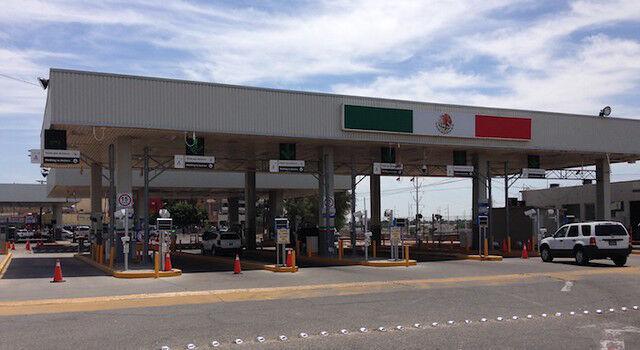Growing up in a bordertown offers a unique perspective on trade, immigration and cultural exchange. As a Laredo native and American, I can only admire the perseverance and determination of those who cross the border every day to work laborious jobs in order to provide for their families. Not only are they the bedrock to the United States’ biggest trading port and food supply chain, they are also humans fighting constant prejudice, discrimination and racism in a country founded on exploitation of the most vulnerable.
The worst tactics I have seen are the monetary incentives presented by pharmaceutical companies luring thousands of vulnerable Mexican and Central American immigrants to donate plasma. It has become the new norm for many immigrant workers to make ends meet after COVID-19 left many without work.
While getting paid for plasma is illegal in many countries, the U.S. is known to historically collect plasma from low-income communities. The U.S. is responsible for 70 percent of the global supply of plasma. Blood plasma is an essential component of medical procedures and research, is highly valuable, and is an easy way to make money if you meet the basic requirements. The U.S. has passive guidelines around plasma donations, allowing individuals to donate up to two times a week. Pharmaceutical companies have the advantage of targeting vulnerable immigrants who may not have many alternatives. Instead of it being a willful transaction between two consenting parties, it is a form of manipulation and exploitation.
Along the border, it’s common for immigrants with work visas living on the Mexican side to cross frequently. It has been questioned if crossing the border to simply donate plasma is illegal, but there’s no defined answer. When proper documentation is shown, they are able to cross at their own discretion. Therefore, the act of crossing for blood donations can be hard to trace and has no real legal consequences. When asked about the lawfulness of this practice, Customs and Border Patrol spokesperson Roger Maier said, “I’m sorry, it’s a gray area, but I can’t give you a yes or no.”
This, in turn, furnishes pharmaceutical companies leverage to manipulate the decision of these immigrants knowing they have limited income and job opportunities. Most immigrants aren’t allowed to do much if they only have a work visa. So when they are looking for extra money (apart from their job) the only option they have is donating plasma. Most of these donation facilities are along the physical border making it extremely accessible for them.
Worse, it’s clear donating plasma frequently has many long-term health effects. They risk exposure to diseases by weakening their immune system and still manage to work high-risk jobs. There are immigrants who donate blood plasma twice a week, every week, for two years straight. It’s evident pharmaceutical companies are using incentives driven by manipulation tactics to induce immigrants with small cash rewards. Some of the country’s most productive centers are located at the U.S.-Mexico border — often within walking distance of an international bridge and rank highest in donations.
These immigrants are not lazy; they are only allowed entry to the U.S. if shown a valid work visa. Rather, it is a matter of making ends meet. People claim it’s a matter of choice and that compensation is enough, so immigrants should know better and weigh the costs and benefits when donating so often. Many immigrants simply don’t have the luxury to think long-term; they do what is best now: to survive and put food on the table for their families.
The truth is, these pharmaceutical companies are creating strategic nudges and tactics to lure these vulnerable immigrants who are economically desperate. American’s capitalistic approach of persuasion (marketing) is ethical in a free and competitive market, but is it valid to do this to human beings in return for blood? Are ethical and moral standards not applicable for immigrants, does not being American make it acceptable to target them when most vulnerable?





















